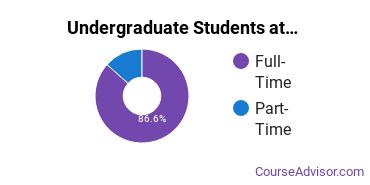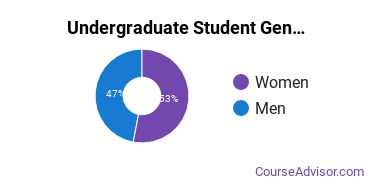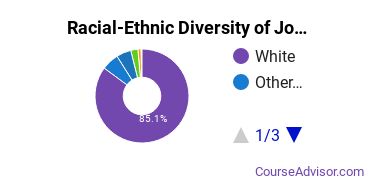Johnson University Overview
Johnson University is a private not-for-profit institution located in Knoxville, Tennessee. The rural area surrounding the school is great for students who prefer living in a country setting.
What Is Johnson University Known For?
- Johnson University has an impressive student to faculty ratio of 10 to 1.
- The highest award offered at Johnson University is the doctor's degree.
- During a recent academic cycle, 100% of the faculty were full-time.
- The average Johnson University student graduates in 4.2 years. That's better than the national average of 4.4 years.
Where Is Johnson University?

Contact details for Johnson University are given below.
| Contact Details | |
|---|---|
| Address: | 7900 Johnson Dr, Knoxville, TN 37998 |
| Phone: | 865-573-4517 |
| Website: | johnsonu.edu |
| Twitter: | https://twitter.com/JohnsonUniv |
How Do I Get Into Johnson University?
You can apply to Johnson University online at: https://my.johnsonu.edu/ICS/Admissions
Admission Requirements for Johnson University
| Submission | Required? |
|---|---|
| High School GPA | 1 |
| High School Rank | 3 |
| High School Transcript | 1 |
| College Prep Program | 5 |
| Recommendations | 1 |
| SAT or ACT Scores | 1 |
| TOEFL | 1 |
How Hard Is It To Get Into Johnson University?
Approximately 41% of accepted students are men and 59% are women. The acceptance rate for men is 61%, and the acceptance rate for women is 65%.
Average Test Scores
About 18% of students accepted to Johnson University submitted their SAT scores. When looking at the 25th through the 75th percentile, SAT Evidence-Based Reading and Writing scores ranged between 500 and 595. Math scores were between 500 and 580.
Can I Afford Johnson University?
The net price is calculated by adding tuition, room, board and other costs and subtracting financial aid.
Student Loan Debt
Almost 66% of college students who graduated with the class of 2018 took out student loans, but that percentage varies from school to school. At Johnson University, approximately 57% of students took out student loans averaging $5,511 a year. That adds up to $22,044 over four years for those students.
Explore Best Ranked Schools for You
Johnson University Undergraduate Student Diversity

There are also 319 graduate students at the school.
Gender Diversity
Of the 631 full-time undergraduates at Johnson University, 49% are male and 51% are female.

Racial-Ethnic Diversity
The racial-ethnic breakdown of Johnson University students is as follows.

| Race/Ethnicity | Number of Grads |
|---|---|
| Asian | 3 |
| Black or African American | 27 |
| Hispanic or Latino | 12 |
| White | 544 |
| International Students | 7 |
| Other Races/Ethnicities | 38 |
Geographic Diversity
Tennessee students aren't the only ones who study at Johnson University. At this time, 19 states are represented by the student population at the school.
Over 18 countries are represented at Johnson University. The most popular countries sending students to the school are China, Brazil, and Zimbabwe.
Johnson University Undergraduate Concentrations
The table below shows the number of awards for each concentration.
References
*The racial-ethnic minorities count is calculated by taking the total number of students and subtracting white students, international students, and students whose race/ethnicity was unknown. This number is then divided by the total number of students at the school to obtain the racial-ethnic minorities percentage.
- College Factual
- National Center for Education Statistics
- Image Credit: By Dwight Burdette under License
More about our data sources and methodologies.
